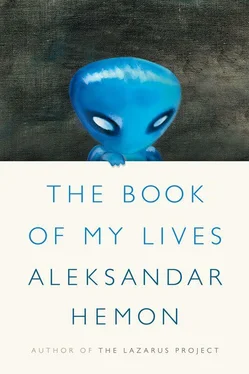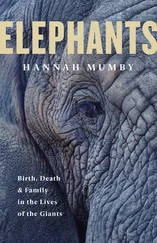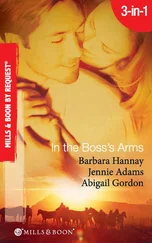The following day Father told us that we would fly to Brussels, where we could catch an evening flight to Kinshasa — the general buried, Mobutu had released the aircraft. As we left the hotel, Father shot one last glance of sublime hatred at the receptionist, but Kristina and I were strangely sad to be leaving. On a building across the street from the hotel, a passionate soccer tifoso had draped a vast flag, the same shade of blue as my father’s sweat-stained shirt, which read “ Grazie, Azzurri .”
We spent a day in Brussels, admiring resplendent duty-free shops and spotless bathrooms. In the evening, we were finally on the flight to Africa. Attached at the Walkman, Kristina and I listened to Bowie’s beautiful album. Flying along the dividing line between night and sunset, on one side we could see complete darkness and on the other a horizon in spectacular flames. In Ostia, something had awoken in us and Low was the soundtrack for what we were, changed, experiencing. That night, we could not sleep at all, flipping the cassette back and forth, until the batteries ran out. “Don’t you wonder sometimes,” sang Bowie all the way to Kinshasa, “about sound and vision?”
1
Back in the happy days of my mildly troubled adolescence, my parents returned from work around 3:45 p.m., so the family dinner — which we called ručak , which is lunch — was at 4:00. The radio would always be on for the four o’clock news, featuring all varieties of global decline, international disasters, and the homey accomplishments of socialism. My sister and I would submit to an interrogation on school matters by our parents and were never allowed to eat in silence, let alone read or watch television. Whatever conversation we mustered up had to be terminated for the weather forecast at 4:25; the dinner was usually over by 4:30. We were obligated to finish everything on our plates and thank our mother for her efforts. Then everyone would retreat for a nap, after which we would have coffee and cake, sometimes an argument.
My sister and I took our family meals to be a means of parental oppression. We regularly complained: the soup too salty, the green peas served too often, the weather forecasters obviously lying; the cake too unattractive. For the two of us, the ideal dining experience simultaneously involved ćevapi (grilled skinless sausages, a kind of Bosnian fast food), comic books, loud music, television, and the absence of our parents and weather forecasting.
In October 1983, at the age of nineteen, I was conscribed in the Yugoslav People’s Army and served in Štip, a town in eastern Macedonia, which apart from the military barracks was home to a bubble-gum factory. I was in infantry, where the dominant training approach was ceaseless debasement, beginning with the way we were fed. At mealtime, we would line up on a vast tarmac — where our hunger was exacerbated by the bubble-gum smells wafting in the air — undergo a roll call, and then march into the cafeteria, unit by unit, soldier by soldier, sliding our icky trays along the rails, each of us thinking up a way to solicit a bigger slice of bread from the all-powerful and pitiless kitchen staff.
The choices were impressively limited, stamping upon our minds the basic quality of serving —none of the choices could ever be ours. For breakfast, apart from dry bread, we would get a boiled egg, a packet of rancid margarine, occasionally a slice of sticky, thick, unsmoked bacon (if you were deft and quick, which I was not, you could solicit it from a Muslim); we washed it all down with tepid, sweet tea or decondensed milk in plastic cups that had been absorbing grease for an eternity. Lunch always required the use of a spoon; the most common and widely beloved dish (which I profoundly hated) was a thick bean soup — complete with tiny sprouts that looked exactly like maggots — because it filled up the starving heroes-in-the-making and allowed for an encyclopedia of fart jokes, complete with sound effects. Dinner consisted of modified lunch leftovers, unless it was the very same lunch all over again (once we had green peas for nine consecutive meals), plus a greasy cup of prune-based bowel-movement potion. Even if we wanted to talk to one another, there was never time for conversation, for we had to devour the crappy grub quickly and then clear out for another ravenous unit. A persistent rumor claimed that bromide was added to all the food to keep soldiers docile and hard-ons down.
And those were the good meals. We longed for them when we left the barracks to be deployed in the arid Macedonian plains and practice sacrificing our lives to dam the flood of foreign invasion. Between hypothetical heroic victories we slurped indefinable concoctions out of canteens or munched on the contents of our MREs: stale crackers, ancient tuna from cans, impenetrable dried fruit. Perpetually hungry, I recalled my family dinners before sleep and constructed elaborate future menus featuring roast lamb or ham-and-cheese crepes or my mother’s spinach pie. The fantasy just made me hungrier and more despondent.
Apart from the continuous roughing-up that was to induce us into the deprivations of manhood, the army was supposed to be one big family, a manly community bound by loyalty and comradeship, sharing everything. As a matter of fact, at no time did we practice anything even close to sharing, unless you count the farts. You never, ever offered to anybody your goodie-laden package sent from home nor did you leave any food in your locker, which you were forbidden to lock — at the Yugoslav People’s Army’s barracks, pilfering was already being rehearsed for the future wars. If you had any food left after stuffing yourself, you bartered it for clean socks and shirts, for an extra shower or a daytime fire-watch shift. Food wasn’t meant to be shared, because it was a survival commodity. I had no trouble imagining heroically facing the foreign enemy only to get a bullet in my back and die for the tuna can in my pocket.
The only one who willingly shared his food was the soldier in my unit who soon after his arrival went on hunger strike because he didn’t want to serve. Our superior officers ignored his self-famishment, certain he was bluffing. But he was quickly fading and soon it was clear to all of us he was dead serious, willing to go all the way. But the officers spent their days being idiotically certain they could see through his devious ploy, and the starving soldier, however weak, had to be present for the roll call and the subsequent meal. So a couple of fellow soldiers were always required to help him stay on his feet in the lineup and then totter to the cafeteria. Suddenly he acquired a lot of great comrades, all of whom were determined not to let his allotment of food go to waste. Eager to get his food, his escorts would fight over his boiled egg, piece of bread, or bowl of beans, while he smiled with his eyes closed, his emaciated cheek laid on the table. Perhaps he was delirious, but I thought he may well have been envisioning dinner at home with his family. A few days later, he was gone, and I never found out what happened to him. I hope he went back home, wherever it may have been.
A few months after my conscription, my mother and sister undertook a two-day trip from Sarajevo to visit me for a weekend. At the time, I was deployed in Kičevo, in western Macedonia, for truck-driver training. The weather lived up to a dismal forecast, so we spent the two days in a dismal hotel. Mother had dragged heavy bags of food on the many trains from Sarajevo and brought along a feast: veal schnitzels, fried chicken, spinach pie, even a custard cake. She spread a towel on the bed, as there was no table, and I ate from food containers, much of it with my fingers. The first bite into the spinach pie brought tears to my eyes and I silently swore that from thereon in I’d always respect the sanctity of our family meals. I wouldn’t entirely keep my promise, needless to say, but as the perfectly mixed spinach and eggs and cheese and filo dough melted in my mouth, I felt all the love that could be felt by a boy of nineteen.
Читать дальше












